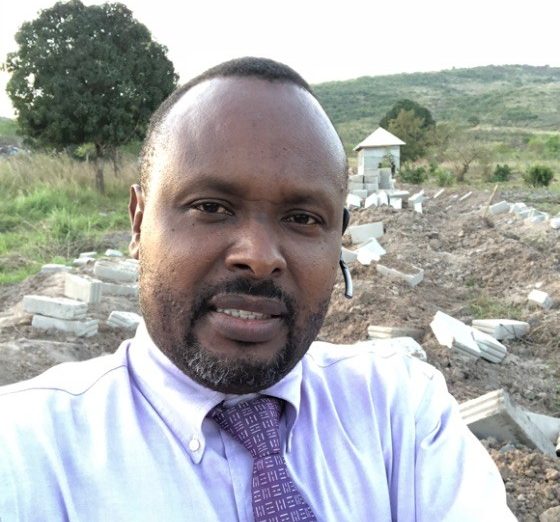IT has been said over and over, that President John Magufuli’s anti-corruption drive is a sham, anti-democracy and political vendetta against his political rivals and critics.
When Yusuf Manji was arrested and remanded for serious corruption charges, the state was attempting to paint the president as a champion against corruption. Few people knew that the relations between Magufuli and Manji had soured long before the former because president, during his time as land and settlements minister. Even during Magufuli’s presidential bid, Manji was an outright supporter of other candidates.
Some of those who had enjoyed Manji’s outright support in their presidential bid include Bernard Membe – a former cabinet minister currently in Magufuli’s black books. Even though the charges against Manji were finally dropped, the damage had been done, and Magufuli had achieved what he wanted.
The list of businessmen who have been persecuted in court and in many other ways is long, and even before the introduction of the plea-bargain loophole, many of them had to corruptly part with huge chunks of their fortune in order to regain their freedom.
Activists have been accusing Magufuli of using the anti-corruption drive to justify the violation of civil rights. He orders the arrest and detention of people incommunicado for several days without charging them. Some lawyers have been arrested or threatened when they demanded to be present during the interrogation of their clients.
In recent days, he ordered the arrest of top officials of the Medical Store Department (MSD) – Laurean Bwanakunu Rugambwa and Byekwaso Tabura. The president fired them a few weeks ago after he had openly blamed the national laboratory management for allegedly mishandling COVID-19 specimen.
He alleged that the equipment used was either fake or the lab officials were being used by “western imperialists.” MSD was the main agent for the procurement of the medical equipment. As a result, the former MSD officials are facing serious criminal charges that will keep them remanded in prison indefinitely.
However, impeccable sources from the government have confided to SAUTI KUBWA that political vendetta is part of the deal. According to them, it has been a long-time ambition for Magufuli to clean up all presidential appointees that he inherited from his predecessor.
The former MSD chief was appointed by President Jakaya Kikwete in June 2015. Magufuli has used the COVID-19 scenario to relieve him of his duties in a very unceremonious way.
Word is out that Magufuli’s relation with his Vice President, Samia Suluhu, is hanging in a delicate balance. For reasons that are best known to Magufuli, some statehouse staff and presidential appointees are warned secretly to maintain a cold admiration to both Kikwete and Suluhu.
One cabinet minister was publicly reprimanded by Magufuli after he was seen visiting Kikwete’s home place in Msoga village. A few days later, he was fired. He was recently reappointed minister.
It is alleged by some intelligence officials that the MSD chief was on several occasions seen with the vice president’s staff, something that did not please the president. A lawyer by training, Rugambwa has maintained cordial and professional ties with the vice president, unaware of the president’s feelings, hence seriously putting to question his loyalty to Magufuli.
Sources within the Prevention and Combating of Corruption Bureau (PCCB) have confided to SAUTI KUBWA that they are working on “instructions from above.” The suspects might be forced to undergo psychological and financial torture before being released.
Double standards have overcrowded the anti-corruption drive under Magufuli. In the process, he has surrounded himself with military and intelligence officials whom he obsessively renders clean from corruption. Presidential appointees with military and intelligence credentials are not charged with corruption even when they are fired in connection with corrupt practices.
Most of them are reappointed to foreign missions or to administrative posts. Those fired without military and intelligence credentials are the ones rotting in remand prisons without trial.
Three high ranking intelligence officials were deployed abroad after being fired; four military generals and five police commanders were reassigned to other strategic posts. At the same time, some laymen have died during police interrogations, and tens others are still in remand custody.
Rugambwa and Tabura are likely to be the next victims of political vendetta between Magufuli and his predecessor, Kikwete. But observers blame the existing loopholes in the judicial system.
The justice system in Tanzania is broken, making it possible for authorities to arrest and prosecute anyone with imaginary charges and without bail. Such charges would keep the accused in remand prison for up to 10 years without their case being heard.
This is a loophole that is used by evil-minded people to take reprisals against their rivals or competitors in order to have them punished without being convicted. As expected, it is becoming a breeding ground for corruption.
Activists argue that police should not arrest or prosecute anyone without due evidence. This would help to avoid keeping innocent people in prison for years before acquittal or sentencing.
Moreover, all charges should be bailable and all cases should be handled by competent courts in order to avoid unnecessary delays and technical dillydallying.
As of now, most cases related to money laundering and economic crimes are handled by the resident magistrate courts, which are deemed incompetent by law and for which reason many cases remain unheard and uninvestigated – keeping the suspects in remand prison indefinitely.
Magufuli is using the same loopholes to punish his political adversaries or their associates, and his cronies are using the same opportunity to reap from rich suspects. “It is an anti-corruption drive turned corrupt,” says one source.










